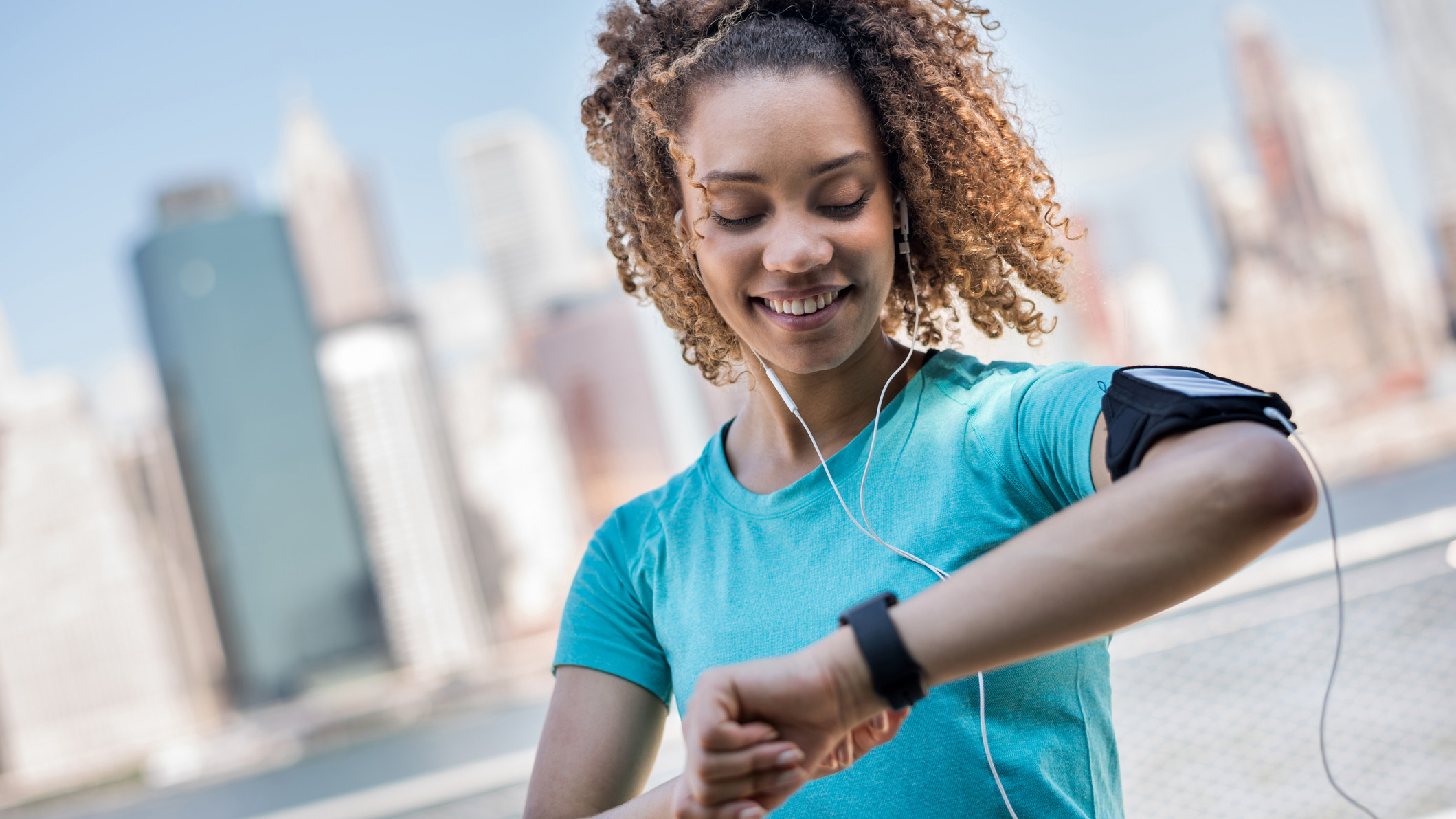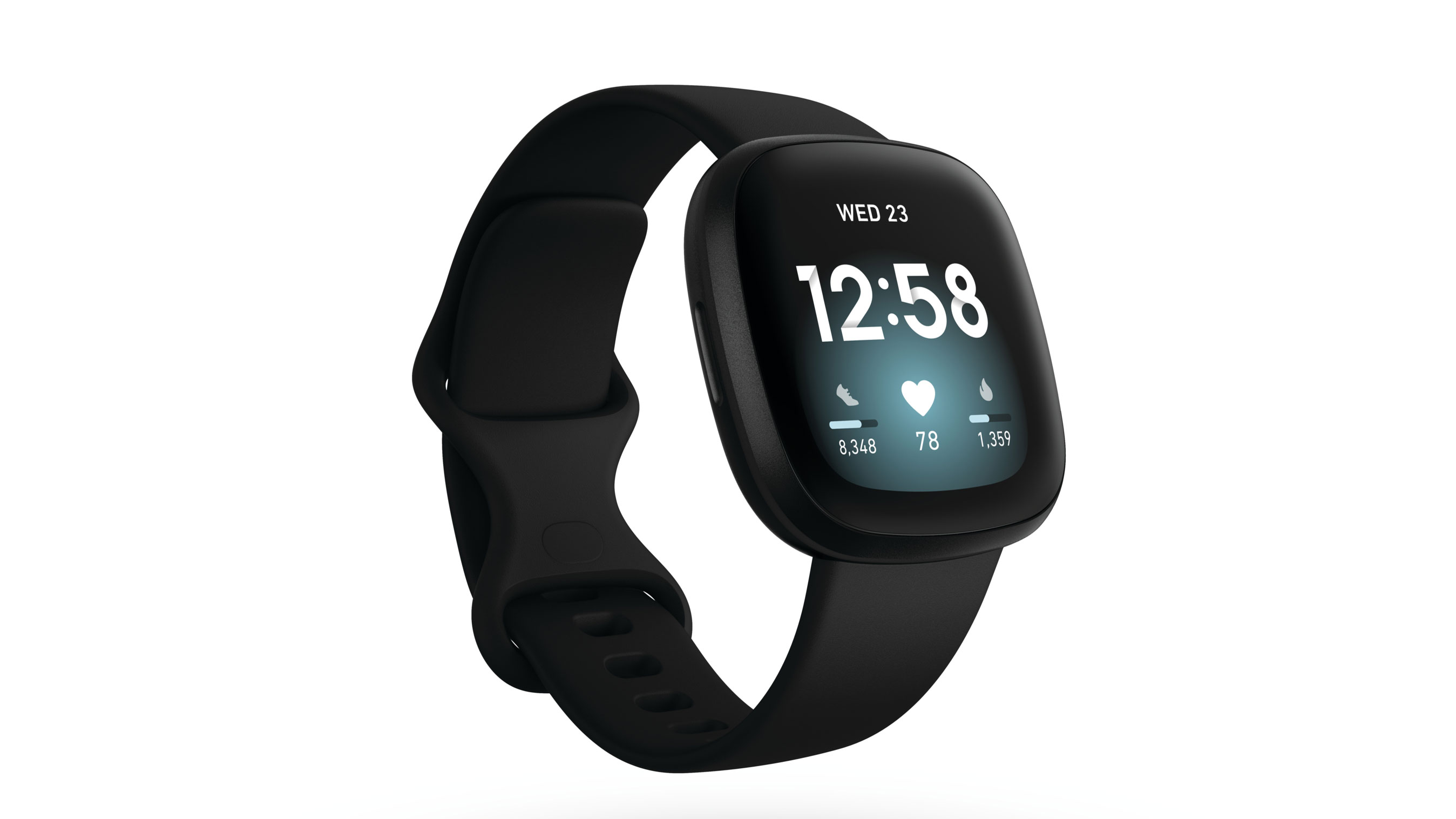Why you should track your heart rate – especially if you’re trying to lose weight
Tracking your heart rate can help you take charge of your health and fitness goals - here’s how…


Start your week with achievable workout ideas, health tips and wellbeing advice in your inbox.
You are now subscribed
Your newsletter sign-up was successful
Awake or asleep, your heart keeps ticking – around 100,000 times a day. And nowadays there are a multitude of devices to help you keep track of your ticker.
These include some of the best fitness watches on the market, such as the Apple Watch Series 5, in addition to more basic band-like fitness trackers. You can also invest in dedicated heart rate monitors that are worn around the middle during high-intensity sweat sessions.
But what exactly is involved in heart-rate tracking - and how is it useful? We asked Personal Trainer James Stirling, AKA London Fitness Guy to give us the lowdown, plus how it could help you lose weight.
- Looking for a good value tracker? Check out the best Fitbit deals
- How to lower cholesterol: tips for keeping your heart healthy
- How to lose weight naturally: 8 ways that don't involve nasties
Why is heart rate tracking helpful?
‘Our heart is our most vital muscle,’ explains James. ‘It supplies the body with oxygen-rich blood, provides cells with nutrients and carries away waste products.’ Training our heart improves its efficiency in carrying out this role.
But without monitoring its activity, how do you really know how hard your heart is working? James explains: ‘Tracking your continuous heart rate is important as it gives us an indication of how hard we work during exercise, how quickly our heart recovers and how hard our heart has to work when we rest.’
Thankfully, plenty of devices now exist to help you keep track of your ticker - and handily, we’ve done the research and picked the best heart rate monitors available on the market.
Heart-rate tracking and weight loss
Hoping to burn some fat and slim down? ‘Weight loss is all to do with energy expenditure,' James explains. 'The higher your heart rate, the more energy you use and the more calories you burn.’
Start your week with achievable workout ideas, health tips and wellbeing advice in your inbox.
James recommends a combination of cardiovascular exercise such as running and resistance training. For serious results, aim for four to five workouts a week.
However, don’t assume that completing a workout means you can get away with gorging on a thick crust pizza with extra cheese. To lose weight, you still need to be creating a calorie deficit, James explains, so opt for healthy, whole foods.
Try oven-roasting sliced veggies, chicken breast and sweet potatoes for a quick, well- balanced, nutritious post-workout meal.

Fitness bands and watches such as Fitbit offer heart rate monitoring
Heart rate zones explained
There are a number of different zones you need to know about to help track the intensity of your exercise, and help you hit your goals. The harder you work, the more blood and oxygen your body requires, so your heart has to beat faster to supply this to your muscles.
First, work out your maximum heart rate – typically the highest number of beats per minute that your heart will beat. Simply minus your age from 220. So a 31-year-old would have a MHR of 189.
From here, you can work out how many heart beats a minute will put you in different zones.
Fat burn zone
New to exercise? This is the perfect zone to start in. Your heart rate is at 50-69 percent of its maximum capacity, with a higher percentage of calories burned from fat, despite total calorie burn being lower. Try a 30-minute walk at a medium pace.
Cardio zone
Aim to make this your target zone, where your heart rate is 70-84 percent of its max. You’re pushing yourself but not straining. A light jog or cycle should achieve this.
Peak zone
When your heart rate is greater than 85 percent of its maximum capacity, you’ve hit the high-intensity exercise zone. These short intense sessions, such as sprints, can help improve performance and speed.
Recovery and resting heart rate (RHR)
Your rate of recovery is the time taken between finishing exercise and returning to resting heart rate. As for resting heart rate, this is exactly what it says on the tin: the number of times your heart beats per minute at rest – typically 60-100 beats. The fitter you are, the lower your RHR. Simple.
A final note on heart rate
There are several factors that can affect your heart rate, so don’t be too alarmed if it seems a little off kilter. Too little sleep, stress, dehydration and caffeine can all cause a rise in heart rate. Plus, if you’re not eating enough, you might not be able to sustain a high heart rate for long.
Lucy is a freelance journalist specializing in health, fitness and lifestyle. She was previously the Health and Fitness Editor across various women's magazines, including Woman&Home, Woman and Woman’s Own as well as Editor of Feel Good You. She has also previously written for titles including Now, Look, Cosmopolitan, GQ, Red and The Sun.
She lives and breathes all things fitness; working out every morning with a mix of running, weights, boxing and long walks. Lucy is a Level 3 personal trainer and teaches classes at various London studios. Plus, she's pre- and post-natal trained and helps new mums get back into fitness after the birth of their baby. Lucy claims that good sleep, plenty of food and a healthy gut (seriously, it's an obsession) are the key to maintaining energy and exercising efficiently. Saying this, she's partial to many classes of champagne and tequila on the rocks whilst out with her friends.
